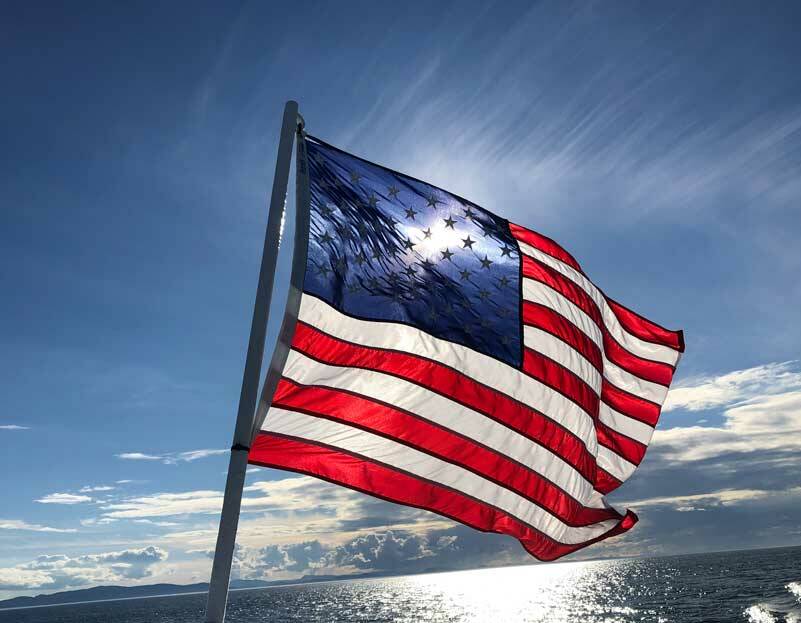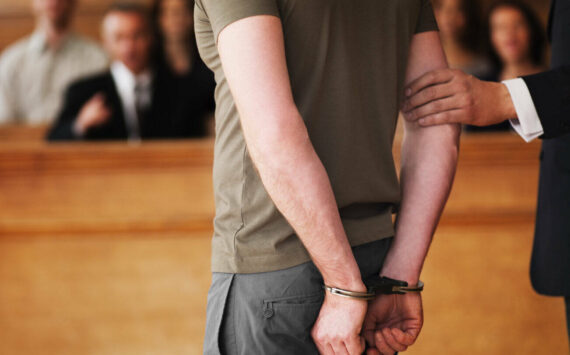By Morf Morford
Tacoma Daily Index
Throughout history – especially in America – humans have been driven by the quest for two cherished ideals: community and freedom.
To say that these two near-primal impulses come into conflict would be the ultimate understatement. To put it mildly, the two don’t coexist easily.
Americans in particular value – if not idolize – individuality and self-reliance, but at the same time, we are utterly dependent on a community (mostly of total strangers) for our most basic needs.
Our food is grown, packaged and sold to us by people we rarely if ever even see – and don’t want to. Our clothing, cars and appliances, and much more appear almost as if by magic in front of us – finished and for sale.
But someone assembled and prepared those things. And marketed and sold them to us.
Usually from many thousands of miles away.
Even our careers and livelihoods are influenced, even defined by the choices others have made – or the opportunities set up for us – or denied to us.
From mothers to fathers, coaches to mentors, we all have a virtual parade of siblings, teachers, peers and parent-figures that guide and influence where we go in life. We idealize personal autonomy, but live and breathe in interdependence – if not outright dependence on others.
The average man does not know what to do with his life yet wants another one which will last forever. – Anatole France
Like dogs fighting over a bone, most of us rarely know what we want – but we see what others want – or what they have – and that, most of the time is as close as most of us get to knowing what we want in life.
Whose Freedom?
In our society, perhaps unlike many cultures, we argue relentlessly about “rights” and “freedom”.
And we rarely, if ever, agree who has what rights – and under what conditions.
You’d think our Founding documents – and current pledges and policies would be perfectly clear – each one of us has the right of personal autonomy and the unquestionable, foundational rights of “life, liberty and the pursuit of happiness”.
Is there anything more fundamental than the right to control one’s own body and steer, to the best of one’s ability their own destiny?
As always, the devil is in the details.
Where do one’s “rights” end and another person, with equal “rights” begin?
Where does respect for another person’s free choice and autonomy factor in when I consider “my” rights?
The “pursuit of happiness” for example should certainly apply in those most basic of choices about marriage partner or career field.
Who one can marry is one of those most elemental choices. How someone in some office can decide who any one of us can or cannot marry is truly one of life’s absurdities that could not be further from the intentions of our Founders.
My body, my choice
A year or so ago, those opposing COVID vaccinations or even masking, used the term “my body, my choice” as their argument for personal autonomy when it came to public pandemic protocols. Philosophically they had a strong point; if we don’t have rights over what is done to, or even put into our own bodies, what rights do we have? But that principle, if valid and binding, is equally true for others.
Whose rights – and under what conditions?
If they, or any of us, really believed in the guiding principle of “my body, my choice” for everyone in every situation, many of our laws would be very different.
Why, for example would any drugs be “illegal”? If any one of us chose to use any given drug, why is it the government’s business what we do with our own body?
The Founding Fathers spent essentially no time proscribing any drug use – in fact several of the Founding Fathers – as in Jefferson and Washington – grew or prepared their own.
The anti-vax crowd got their “my body, my choice” slogan from the abortion pro-choice coalition, which, of course, held it as their guiding principle. What, after all, could be more of a derailment of the “pursuit of happiness” than an unintentional, unwanted and perhaps life-threatening (and certainly career intruding) pregnancy?
Whatever one’s position on abortion, the over-riding concept of “my body, my choice” surely holds precedence, legally and morally, over the “her body, their choice” that currently seems to be the standard.
It is, or at least should be, a given that no individual has the “right” to impinge on the “rights” of others.
In America, we love our weapons – that is, we love our “right” to take away anyone else’s “life and liberty”.
The ironies and contradictions of that simple statement have convoluted our laws and will baffle legal scholars of the future – as it already does those of other nations.
But let me simplify it a little. Many states (like Washington) are “open-carry” states. It is perfectly legal to carry a visible weapon in a responsible way.
What is NOT legal – in almost every setting – is the brandishing of a weapon. Brandishing simply means to display in a threatening manner.
Threatening others is, by definition, restricting someone else’s “life, liberty and the pursuit of happiness”.
The “right” to “bear arms” is not the right to harass and intimidate others.
At its most basic our right to “life, liberty and the pursuit of happiness” is never at the expense of someone else’s right to do the same.
These are far from new concerns of course. Plato addressed many of these issues in Athens, an ancient expression of democracy. He was far from optimistic about any democracy’s ability to survive. You can see an exploration of his concerns and projections here – https://classicalwisdom.com/philosophy/socrates-plato/plato-and-the-disaster-of-democracy/.
He saw any democracy would have an inevitable bias for its own self-destruction. Plato predicted a society with an enormous socioeconomic gap, where the poor remain poor and the rich become richer off the blood and labor of others.
People will cry out for and demand freedom and liberty. They will use their complaints and grievances as a battle cry against their oppressors, sparking a revolution.
From this revolution, blood will be spilled and many will die. During this time of violent transition, the people will rally behind one man, or a few men, whom they believe to be their savior.
The people will lift this champion to great heights and anoint him with sacred responsibilities to bring liberty to the land.
This, of course, spells the end of anything even slightly resembling a democracy.






